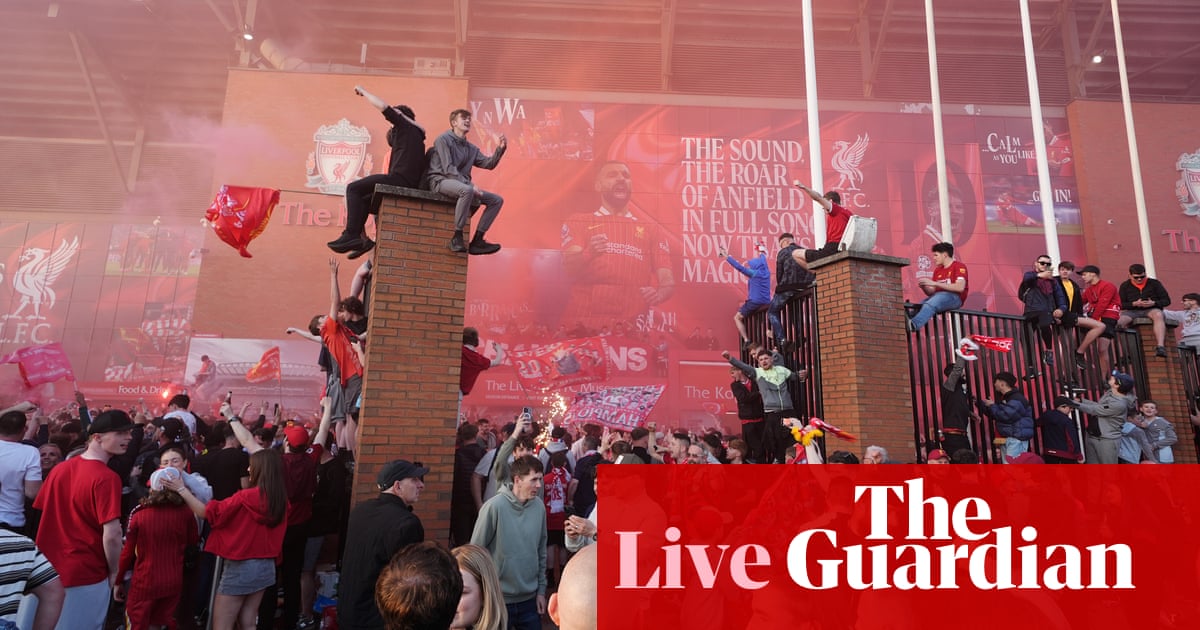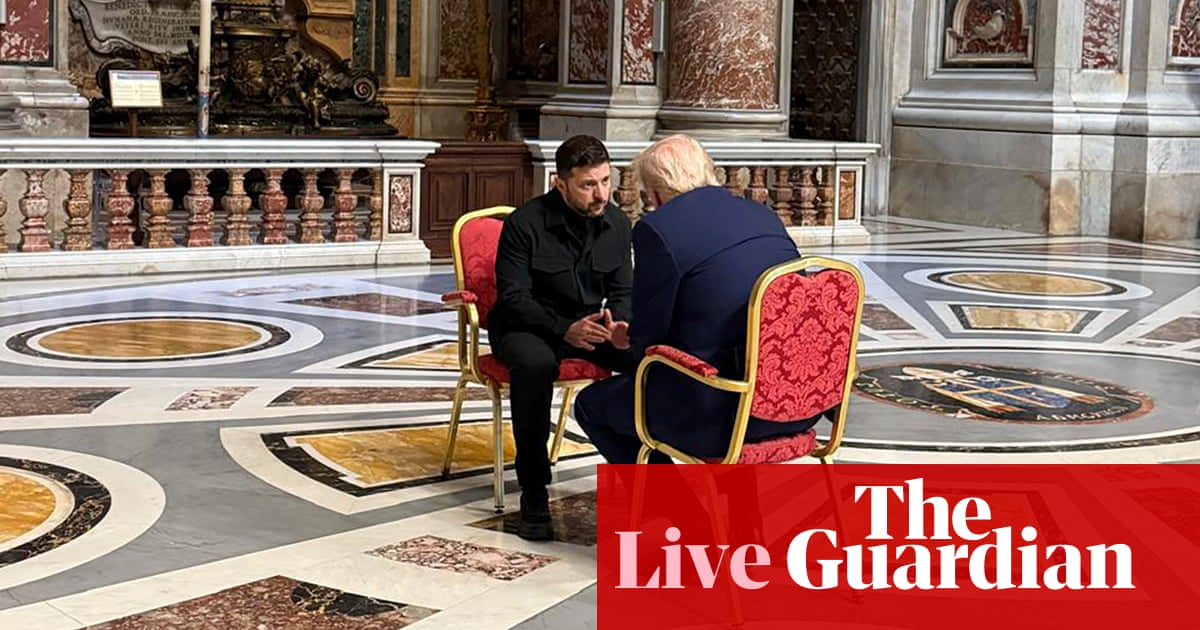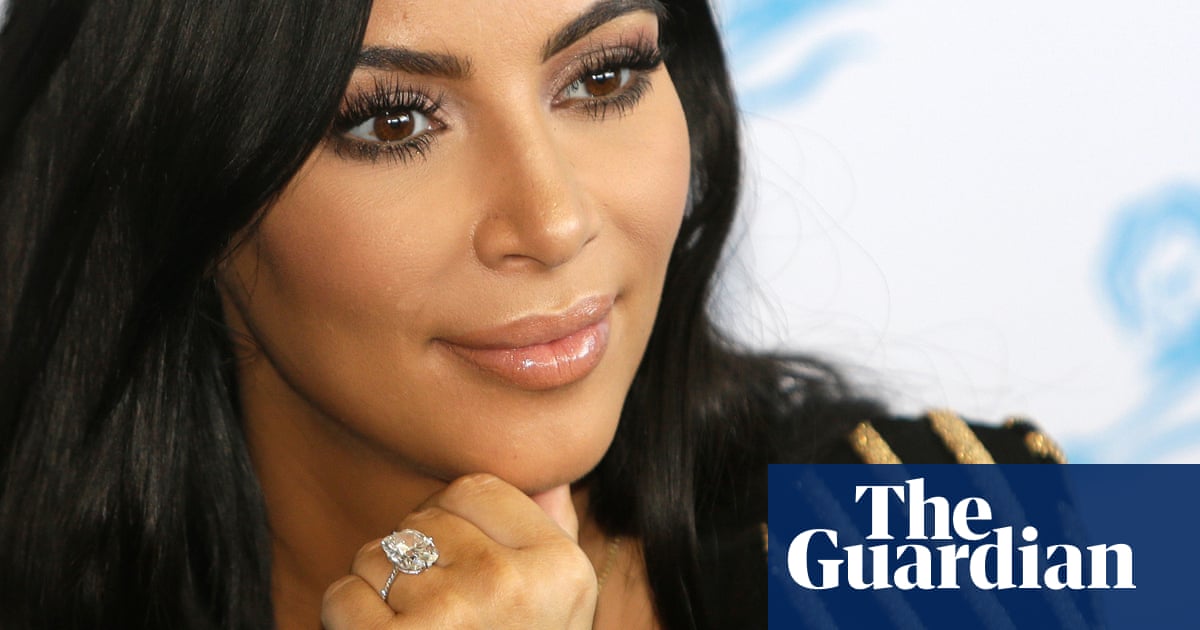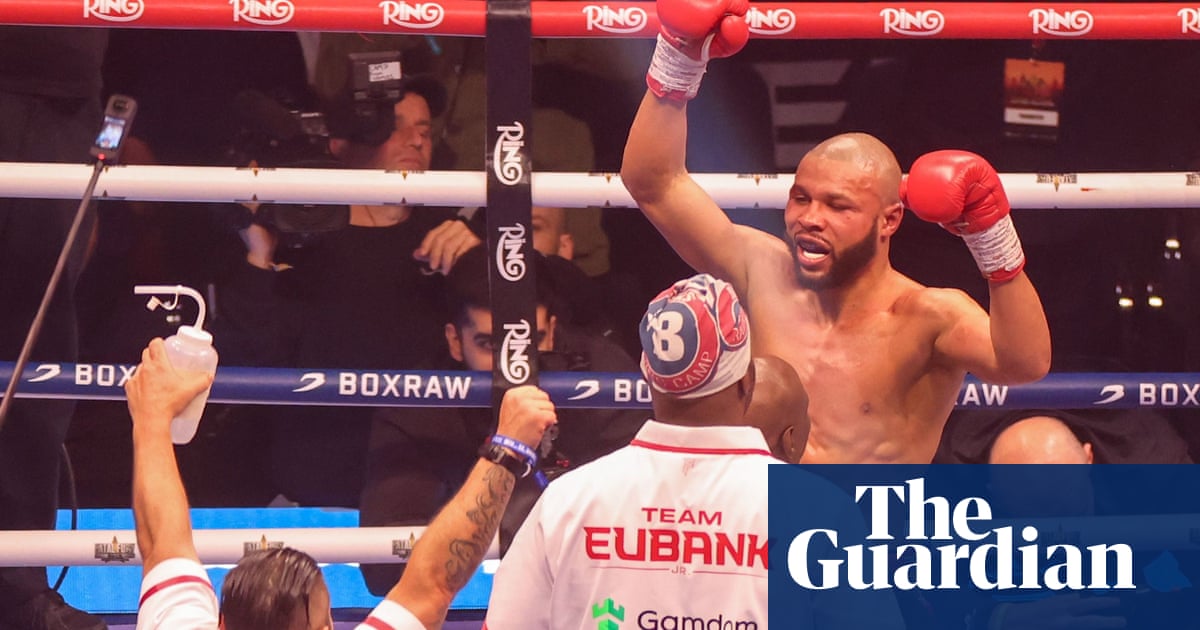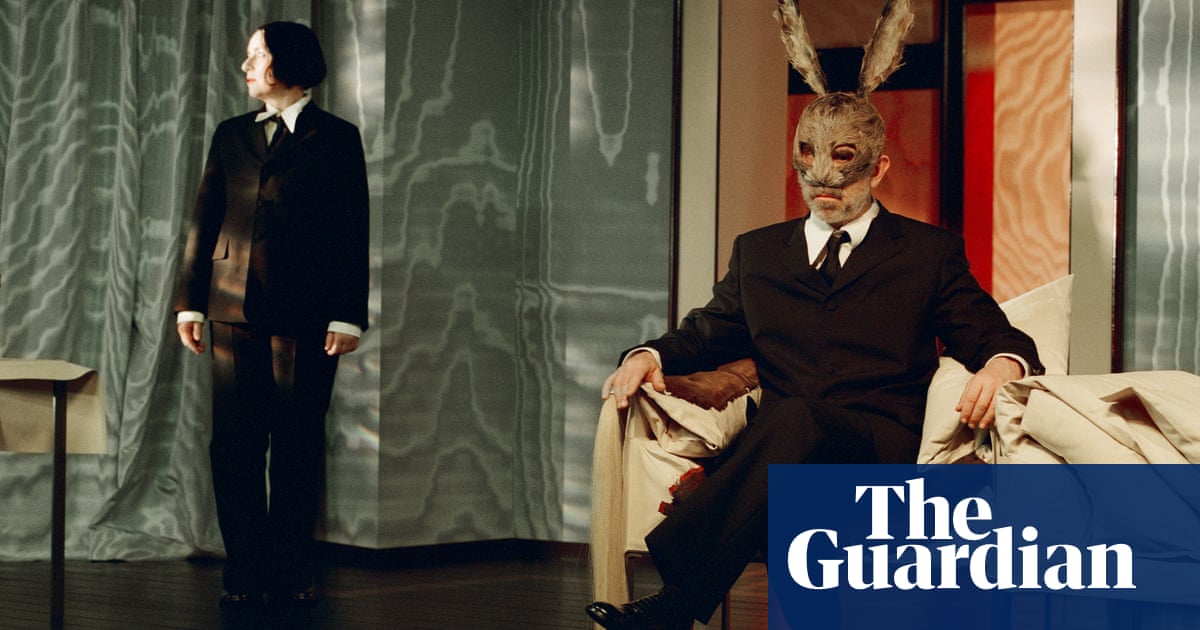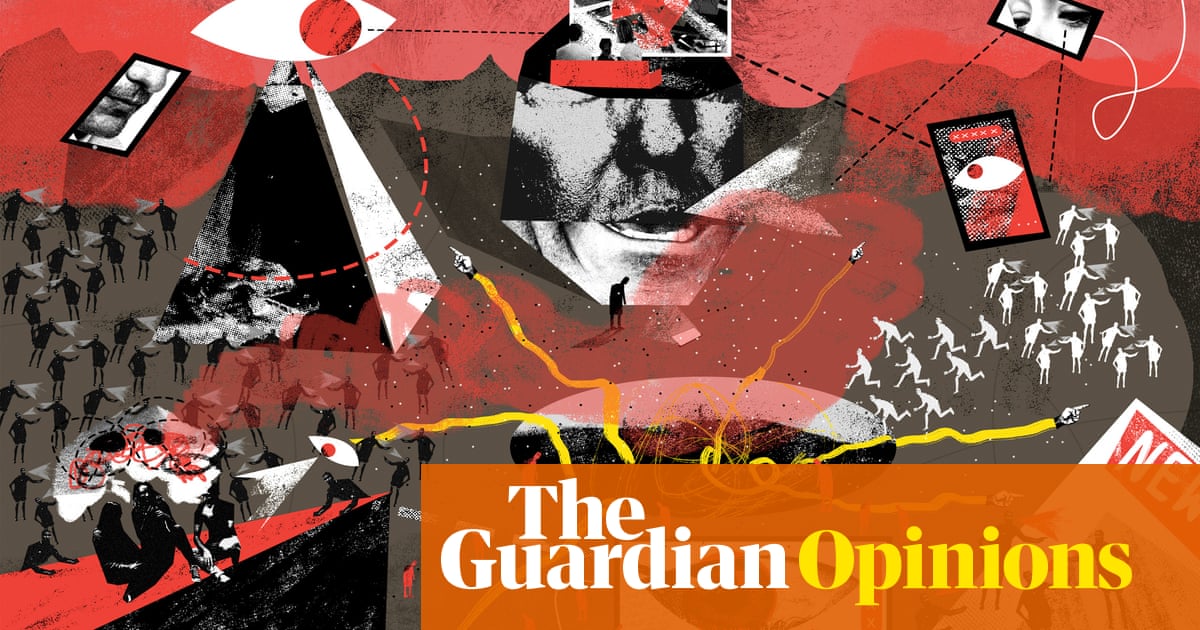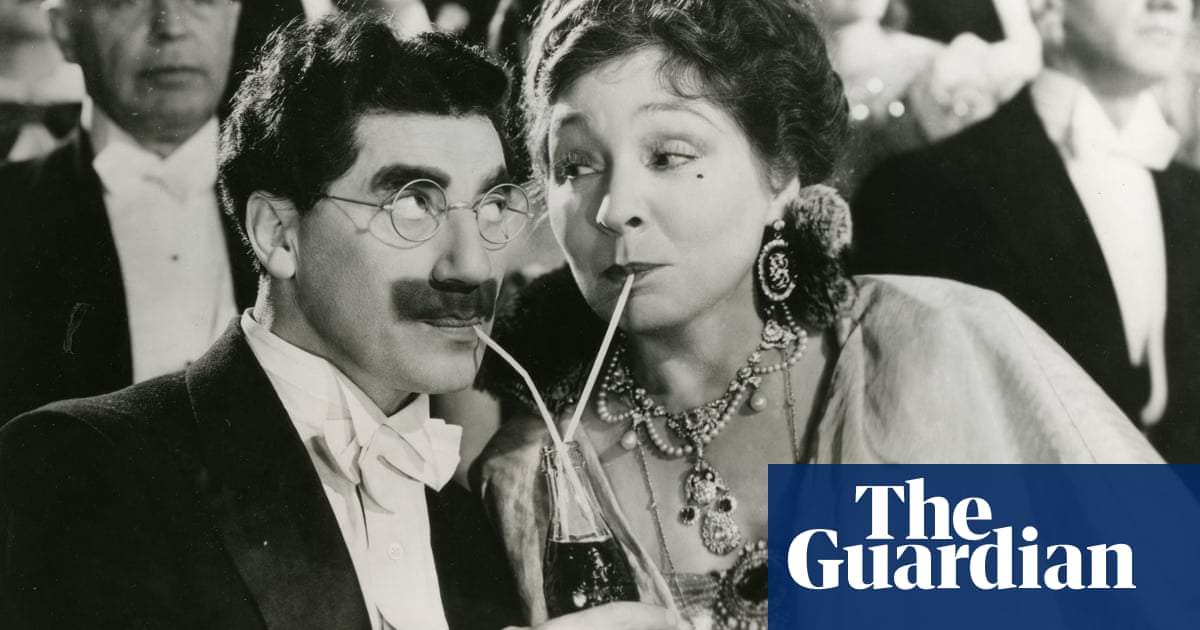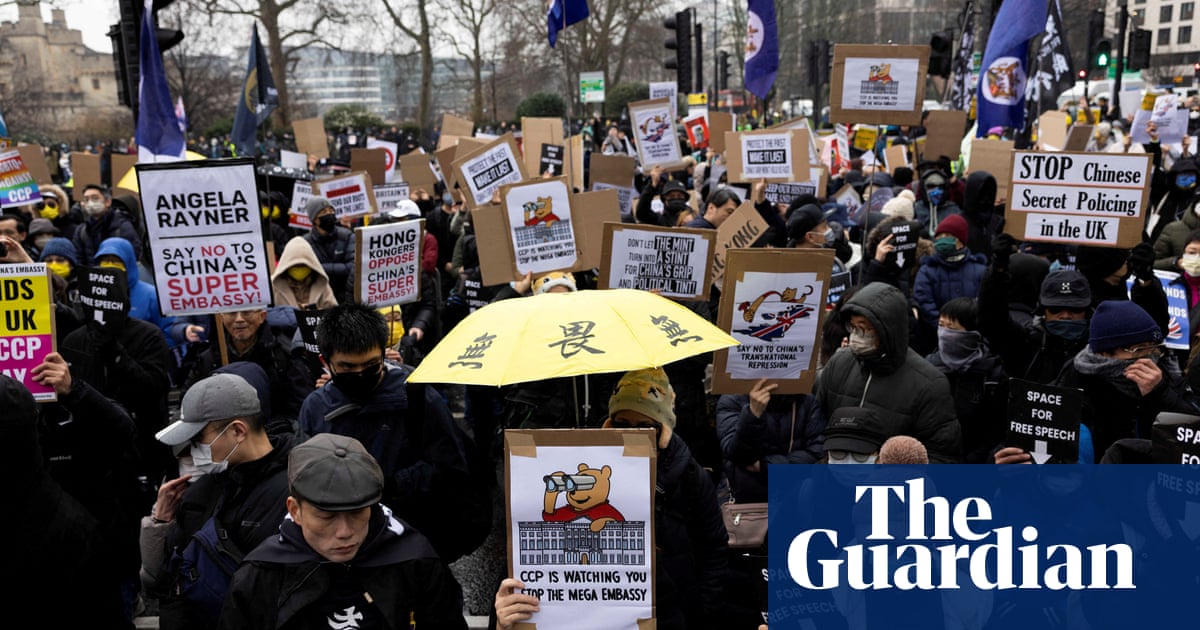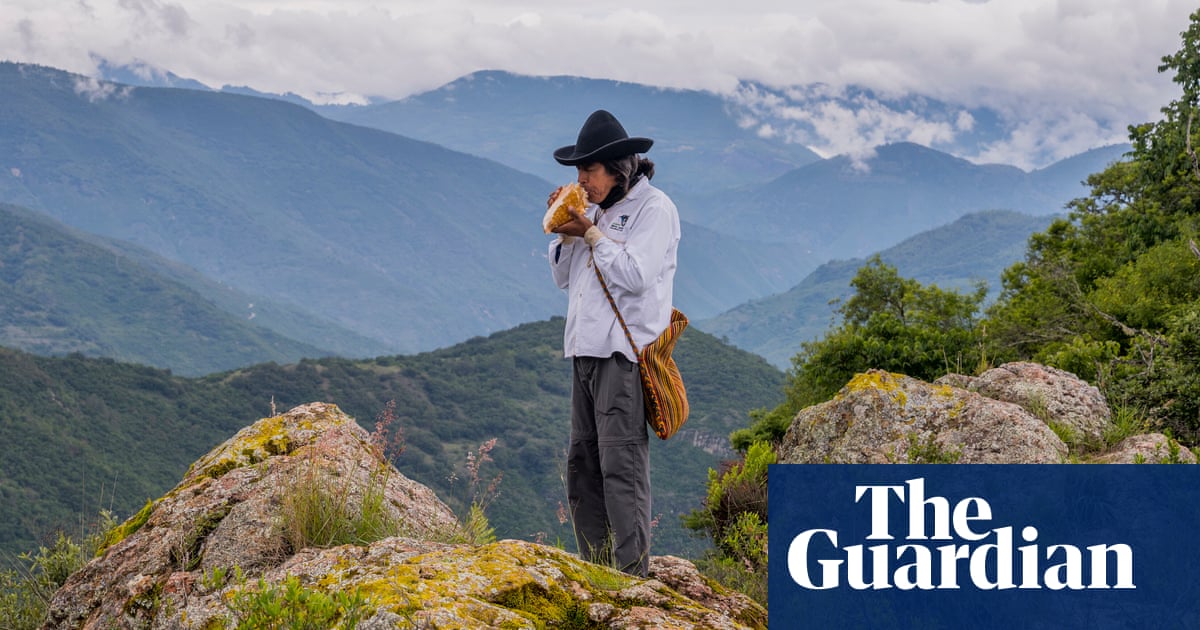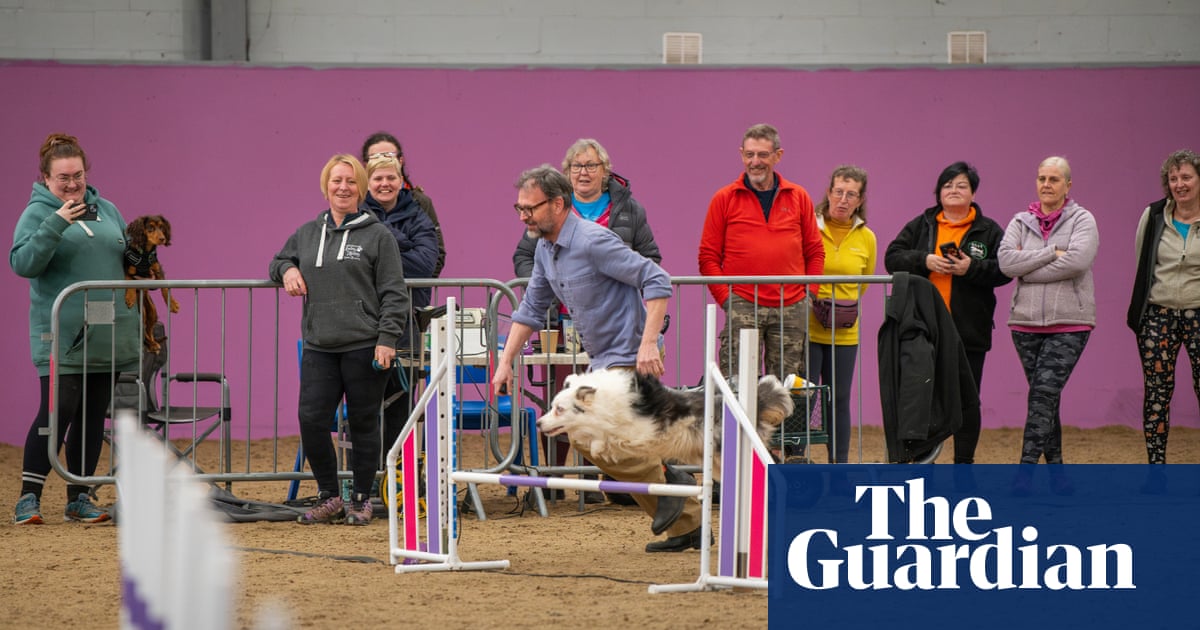On the morning Jon Pointing is due to videocall, I make the mistake of starting to watch the last ever episode of Big Boys. Within seconds I’m in tears, even though the show is a comedy: a coming-of-age story about a guy called Jack, who leaves his working-class family home and starts university. In scenes that verge on slapstick, Jack tries on various identities, attempts to lose his virginity and eventually tells his family he is gay. Yet Jack is also grieving for his father and Big Boys has moments so wrenching that you may find yourself, as I did, suddenly in pieces.
Since 2022, Pointing has been putting the lad into the hit Channel 4 comedy. In a role that has made its way to front and centre, he plays Danny, Jack’s flatmate and best mate, inverting the trope of the gay best friend. At 25, Danny is a mature student: a straight blokey bloke who supports Jack in his coming out and introduces him to life as a fresher, all while struggling with his own mental health problems. When Danny comes off antidepressants in the hope his sexual performance will improve, things don’t go to plan. “Sometimes,” says Pointing, “I’d be like, ‘Does Danny have to be so horny?’” He thought the key to playing the character was to make him “too happy – trying a bit too hard to have a good time”.
Explaining why the finale destroyed me would constitute a spoiler, but I can say that Danny is at the heart of it all. When I tell Pointing I had to switch it off early, because I didn’t want to talk to him with tears streaming down my face, he says people often tell him Big Boys has made them cry. “Which is strange for a comedy,” he says. But then it’s that kind of comedy: one minute you’re laughing hysterically about a performance poetry circle gone wrong; the next you’re sobbing over a resurgent wave of grief.
Pointing is speaking from a bedroom filled with clothes and cats. None are his, it turns out. “I’m on baby duty today,” he says. “So I’ve had to dive into a mate’s house while they look after her downstairs.” His daughter – his first child – is five-and-a-half months old. “She’s very funny, she’s very social, she’s great.”
His wife, Sarah, runs a theatre company called Figs in Wigs. “It’s not mainstream theatre,” he says with a smile. “It’s slightly stranger and more surreal.” Sarah was heavily pregnant when Pointing was filming this third and last Big Boys series. “On the one hand, knowing it was the last series, I was like, ‘Savour this.’ I could feel myself wanting to remember everything. But on the other hand, my brain was being pulled away, because I was thinking, ‘The baby could happen any second.’” In the end, she arrived five days after filming finished. “Production were very grateful to Sarah for not giving birth during the shoot.”
Pointing’s journey towards on-screen lad was a surprising one, especially to him. He was born in London and once said he grew up on “a slightly nicer housing estate, but still an estate” in Epsom. The LGBTQ+ community, he says, has always been a big part of his life. “My oldest childhood friend is gay, came out when we were teenagers, and my mum had gay friends. So I’m a bit more open to it. But when I met my wife, that was her gang, her tribe.”
He found himself at cabaret nights, club nights and gay venues, with people from Sink the Pink and Duckie. Jack Rooke, writer and creator of Big Boys, has said Pointing knows more about queer culture than him. It all fed into his character: when Pointing started to spend time in queer spaces, he “suddenly felt the most heterosexual I’d ever felt in my life. So straight!” Before then, he’d never seen himself as particularly laddish. “I studied drama!” he jokes in a faux-theatrical voice. “I’m trying to be an actor!”
As well as acting, Pointing has done standup for years. During lockdown, he put out an acclaimed comedy series on YouTube called Key Worker, in which he played Bradley from Bromley, a joyfully enthusiastic young man (“Someone who’s comfortable not knowing things”) who volunteers at a food bank. Steve Coogan called it “warm, funny and beautifully observed”.

When Pointing started doing live comedy, he couldn’t help comparing it with the cabaret scene. “I’m speaking generally, because I was a bit on the outskirts of both, but the comedy world isn’t as supportive. In a gay club or a queer place, the fact that someone’s got up on stage is enough – you should support them because it is a huge deal for them. Comedy is a bit more like, ‘Right, if you’re even a little bit shit, you’re getting it.’” He preferred the people he met in queer spaces. “So that became my friendship group as well, because I found it a really lovely place to be.”
One of his first TV jobs was 2017’s Pls Like, an early satire on influencer culture. “I played a sort of vapid, cheery, cheeky chappy – but I didn’t think that’s what I was.” How did he see himself then? “I did want to do comedy, but I saw myself as a bit morose, a bit serious.” He soon realised “there’s this distance between how you see yourself and how the rest of the world sees you”. He does an impression of “every casting I ever had”, turning Cheeky Chappy up to full volume: “Is there gonna be girls there? I’m not gonna go if there’s gonna be no girls.” He laughs. “That was basically it.”
Why does he think he gives that impression? “Maybe it’s partly my looks, a little bit my accent? Most of the people going up for those roles were middle class, maybe a bit more than that. So maybe there weren’t as many people like me doing it. Once you know that, you lean into it.” In his early comedy days, he used to do “a preening acting coach. He was based on my lecturers at uni and a couple of my mum’s ex-boyfriends. Made out he was a sensitive guy but actually he was a creep.”
One night, a producer came up to him after a show. “He said, ‘It’s great, but I think you need to find your Alice from The Vicar of Dibley.’” Alice was the sitcom’s ditsy clown. “Basically, that’s how he saw me: you need to find your silly, goofy ... And that kind of is what happened.”

Now Pointing has become a regular face on TV. He’s done plenty of comedy (Plebs, Starstruck), comedy-drama (Smothered), period drama (Agatha Christie adaptation Murder Is Easy) and drama (Queenie, Sweetpea). His next project is a Harlan Coben blockbuster for Netflix. Although he is less often typecast, it does still happen. “I definitely get roles where they just want you to do what you’ve done, but without any of the depth. There’s no point me playing a version of Danny for half an episode of something. It seems to cheapen it, really, if I just turn up in everyone’s show as a lad.”
And Danny is far more complicated than that. He’s as sensitive as Jack (who is played by Dylan Llewellyn) but lacks a strong family to support him. His father is a deadbeat and his cousin is in prison. In gay clubs, Pointing says, people often come up to him. “They give me a hug, they say ‘Thank you, I love this’, and quote something.” But in other places, he notices that men send their girlfriends over to talk to him instead. He sees the irony in the fact that some men struggle to talk about how much they love Danny, a man who struggles to talk. “That happens quite a lot. That’s when I’m like, ‘There is obviously still a long way to go.’ It’s so deeply entrenched, isn’t it?”
He is including himself in that judgement. “I think I’m quite good at talking, and as you can see, you can’t shut me up sometimes. But I do struggle to articulate myself at times. Or I just don’t. Somewhere along the way, men – or boys – just sort of go off and don’t really talk about things. It’s weird.” He pauses. “I don’t know how we fix that.”
At 38, Pointing is a decade older than his character, and as the show ends, his own life is changing dramatically, too. “Knowing I was about to have a baby,” he says, “and knowing my life was about to move into this next chapter, it felt quite pertinent.” He felt he was waving goodbye to his own youth – a youth that was “heavily extended thanks to Big Boys”.
But after three series, he was ready to grow up. “Because, as I say, in real life I feel like I am graduating from these roles.” So we’re going to find out how the cheeky chappy evolves? “Yeah! What sort of bloke will that be? What sort of man? I guess we’ll find out.”
Pointing has to go – he’s on baby duty, after all. Afterwards, I watch the rest of the finale. Pointing had promised me that Rooke had pulled off a “masterstroke”. All I can say is he’s not wrong.

.png) 2 months ago
95
2 months ago
95

